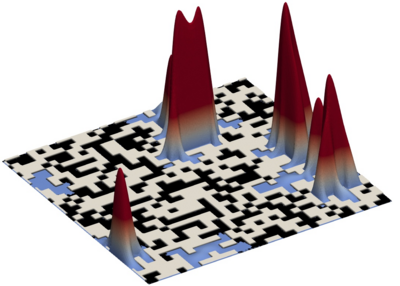Work Group:
Numerical Analysis

Head of group: Prof. Dr. Patrick Henning
Partial differential equations play a crucial role in the modelling of numerous phenomena and processes encountered in physics, engineering sciences, geosciences and many other research areas. Since the exact solving of partial differential equations is typically not possible, numerical methods are required for a computer-aided computation of approximate solutions. In turn, these approximate solutions help us to simulate the relevant physical processes. In addition to the development of new computational methods (for solving the partial differential equations), numerical analysis is primarily concerned with a corresponding analysis of these schemes. This includes, for example, the well-posedness of the methods, proofs of convergence, error estimates or proofs of stability properties.
The working group focuses on applications where the underlying processes span several spatial and/or temporal scales and where traditional solution algorithms reach their limits. This class of so-called "multiscale problems" poses many challenges, both from the perspective of practical computations as well as with regard to the development of suitable numerical methods. The main applications considered by our group are related to materials sciences and quantum mechanics.